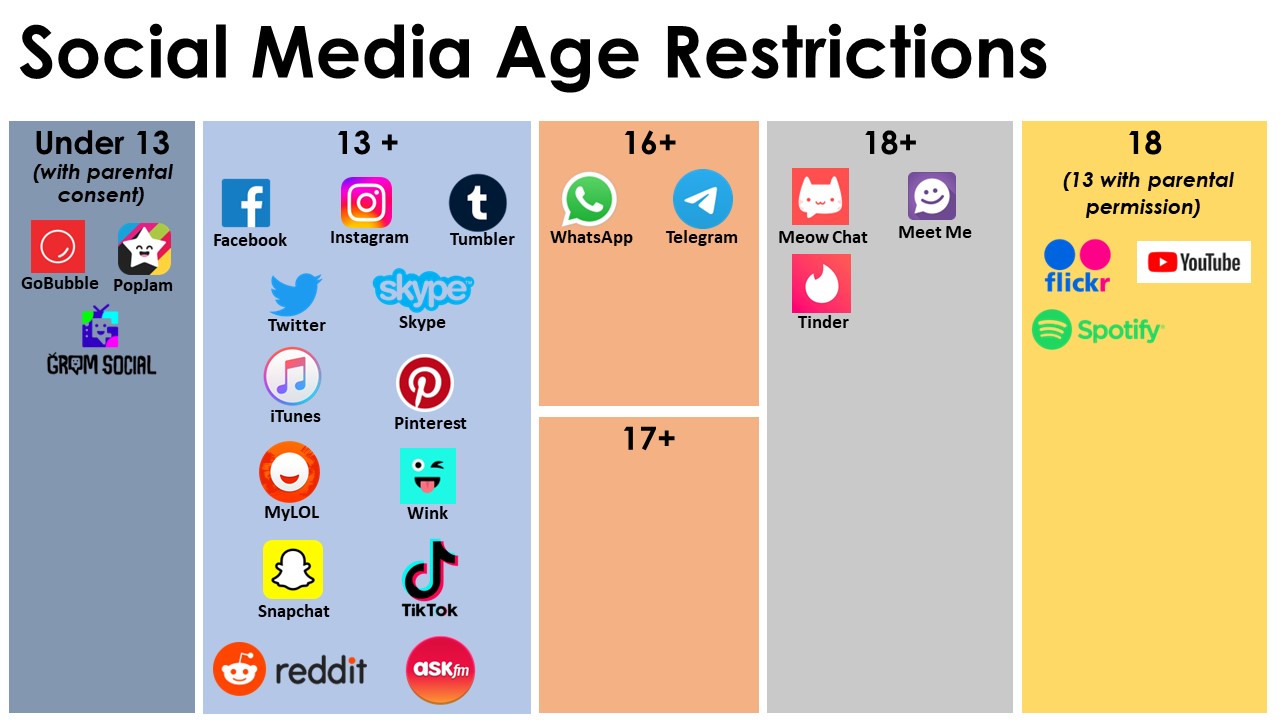


Australia's Prime Minister Anthony Albanese has announced the implementation of age restrictions on social media for those under 16 as part of a larger campaign to increase accountability among tech giants. The responsibility to block underage users now falls squarely on social media companies, with non-compliance resulting in fines for the platforms. This move aligns with a global trend of increasing online safety measures for young users, though enforcing age limits remains challenging due to varying regulations and technical barriers.
Australia Implements Age Restrictions on Social Media for Under-16s
In a significant move to enhance online safety for children, Australia has announced the implementation of age restrictions on social media for those under 16. Prime Minister Anthony Albanese made the announcement as part of a broader campaign to increase accountability among technology giants.
Background
Social media platforms have come under increasing scrutiny in recent years over concerns about their impact on young users. Studies have shown that children are particularly vulnerable to cyberbullying, online predators, and the spread of misinformation.
In Australia, the issue gained prominence after a Senate inquiry in 2019 found that social media companies had failed to adequately protect children from harmful content and behavior. The inquiry made a number of recommendations, including the implementation of age verification measures.
The New Regulations
Under the new regulations, social media companies are responsible for blocking underage users from accessing their platforms. This includes conducting age verification checks and using technical measures to prevent under-16s from creating accounts.
Non-compliance with the regulations can result in fines of up to AUD$10 million for the platforms. The responsibility for age verification now falls squarely on the companies, unlike in some other countries where users are required to self-declare their age.
Challenges in Enforcement
Enforcing age limits on social media remains a challenging task due to varying regulations and technical barriers. Children may use fake birth dates to create accounts, or they may access social media through school networks or public Wi-Fi, which may bypass age verification systems.
However, the Australian government has stated that it will work closely with social media companies to develop effective solutions. It is hoped that the new regulations will deter companies from lax enforcement of age limits and encourage them to invest in robust verification technologies.
Top 5 FAQs
1. Why is Australia implementing age restrictions on social media?
To protect children from the potential harms associated with social media use, such as cyberbullying, online predators, and misinformation.
2. What is the age limit for social media in Australia?
16 years old.
3. Who is responsible for enforcing age restrictions?
Social media companies are responsible for blocking underage users from accessing their platforms.
4. What are the penalties for non-compliance?
Fines of up to AUD$10 million.
5. How will age verification be implemented?
Social media companies will use age verification checks and technical measures to prevent under-16s from creating accounts.
Conclusion
Australia's decision to implement age restrictions on social media is a positive step towards protecting children in the digital age. While challenges remain in enforcing such measures, the new regulations send a strong message to technology giants that they must prioritize the safety of young users. It is hoped that the move will encourage other countries to follow suit and take similar measures to safeguard children from the potential risks of social media.

Following his party's disappointing performance in the recent Bihar Assembly election, politician Prashant Kishor has raised concerns about the voting results, stating that they did not align with the public sentiment he witnessed during his campaign. Despite this setback, Kishor remains determined to build a stronger political organization and continue engaging with the public in preparation for future elections. He also addressed criticisms of his role as an election strategist, reminding critics that one loss does not define his political future.

Indian government under the leadership of Prime Minister Narendra Modi has introduced four new labour codes aimed at protecting the rights and well-being of 40 crore workers across the country. Union Minister Mansukh Mandaviya has hailed the move as transformative and a major step towards ensuring the welfare of the workforce. The new codes bring in much-needed changes such as formalisation and transparency through appointment letters, and universal social security coverage for all workers including gig and platform workers.

In Uttar Pradesh's Lakhimpur Kheri, a police constable is in hot water for allegedly forging a court order to clear his name in an old case, with the intention of securing a promotion. The fabricated document surfaced during an internal investigation, prompting authorities to file a fresh case against the constable. This incident adds to the growing issue of corruption and misuse of power within the police force.

The Supreme Court has directed the formation of a Special Investigation Team (SIT) to conduct a fact-finding inquiry against Vantara, an animal rescue and rehabilitation center in Gujarat, following allegations of non-compliance with laws and acquisition of animals. The SIT, headed by former apex court judge J Chelameswar, will also look into reports of irregularities and complaints from NGOs and wildlife organizations. Vantara has assured full cooperation to the probe and reaffirmed their commitment to animal welfare.

The ongoing family feud within the Rashtriya Janata Dal (RJD) continues to escalate as three more daughters of party patriarch Lalu Prasad Yadav have left the family residence in Bihar's capital Patna. This comes just a day after another daughter, Rohini Acharya, publicly denounced the family and quit politics following the party's poor performance in the recent elections. Amidst allegations of insults and mistreatment, the saga continues to unfold within the Yadav family.

In a special lecture series in Bengaluru, RSS chief Mohan Bhagwat emphasized on the Hindu identity as a responsible and proud son of Bharat Mata. He urged the Hindu society to come together and share the message of 'Vasudhaiva Kutumbakam' with the rest of the world. Bhagwat also recalled the RSS founder and its journey of facing opposition and growth through dedication and sacrifice of its volunteers.

As the West Bengal Assembly elections near, the political battle between Bharatiya Janata Party (BJP) and Trinamool Congress (TMC) has intensified on social media. Following the BJP's victory in Bihar, the party declared its hopes to defeat TMC in Bengal on a popular platform, while TMC leader Kunal Ghosh responded with a proverb highlighting the BJP's potential failure in Bengal. Despite BJP's confidence, TMC remains unfazed and asserts their strong hold in the state.

Congress leader and Leader of Opposition in Lok Sabha, Rahul Gandhi, was criticized by BJP's Shehzad Poonawalla for going on a jungle safari in Madhya Pradesh's Satpura Tiger Reserve instead of focusing on the ongoing Bihar elections. Gandhi had earlier claimed that "vote theft" had taken place in several states, including Madhya Pradesh. BJP's Poonawalla mocked Gandhi's "priorities" and referred to him as the "Leader of Paryatan and partying."

The sudden blast in Delhi that left several people dead has shocked everyone, including Bollywood stars Raveena Tandon, Thalapathy Vijay, Vineet Kumar Singh, and Riddhima Kapoor Sahni. While police are investigating all possible angles, including a terrorist conspiracy, Raveena's comments on social media suggest a link to terrorist activity. The celebrities also expressed their condolences to the victims and their families.

In a historic move, the Madhya Pradesh government has announced that it will be releasing 32 prisoners, including nine from tribal communities, on November 15 to mark Janjatiya Gaurav Diwas or Tribal Pride Day. This decision, initiated by Governor Mangubhai C Patel, aims to recognize and celebrate the contributions of tribal communities on the birth anniversary of their icon, Birsa Munda. This is the first time in India that prisoners will be released on grounds of good conduct while serving jail terms. However, it should be noted that the release will not apply to convicts in cases of rape or the Protection of Children from Sexual Offences (POCSO), as well as those convicted in multiple murder cases.